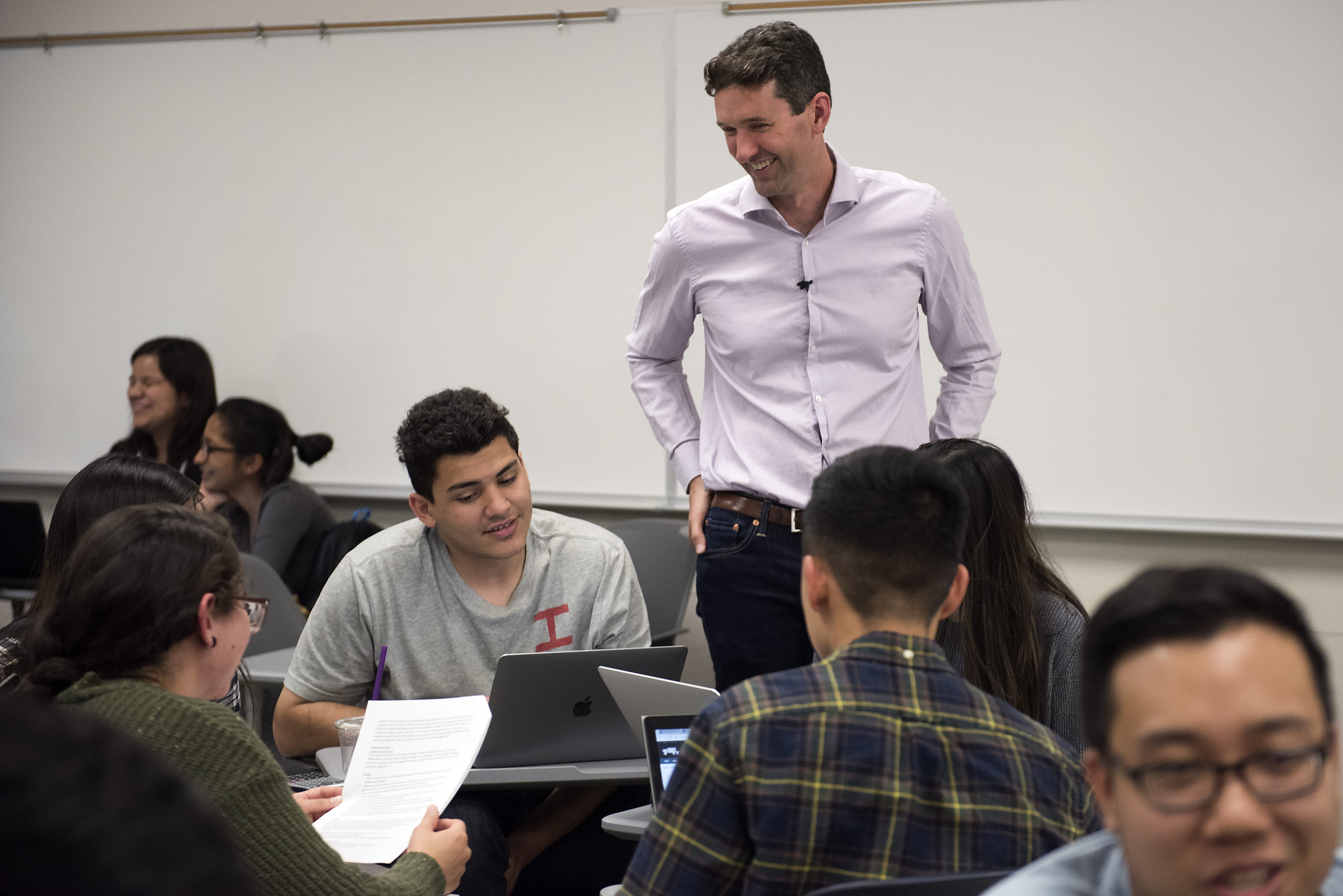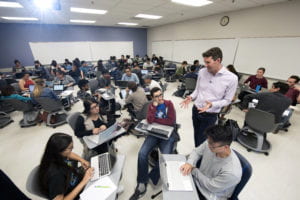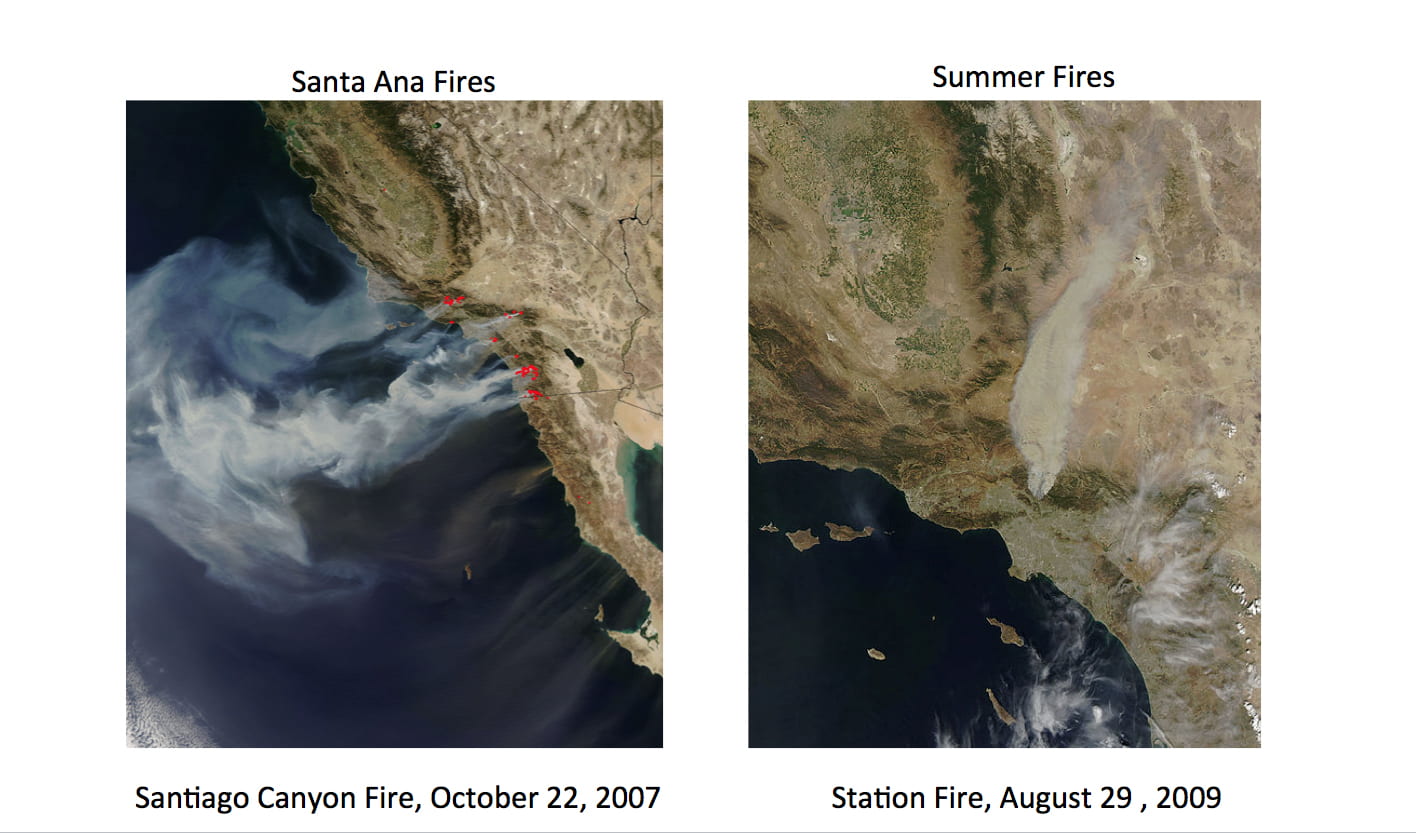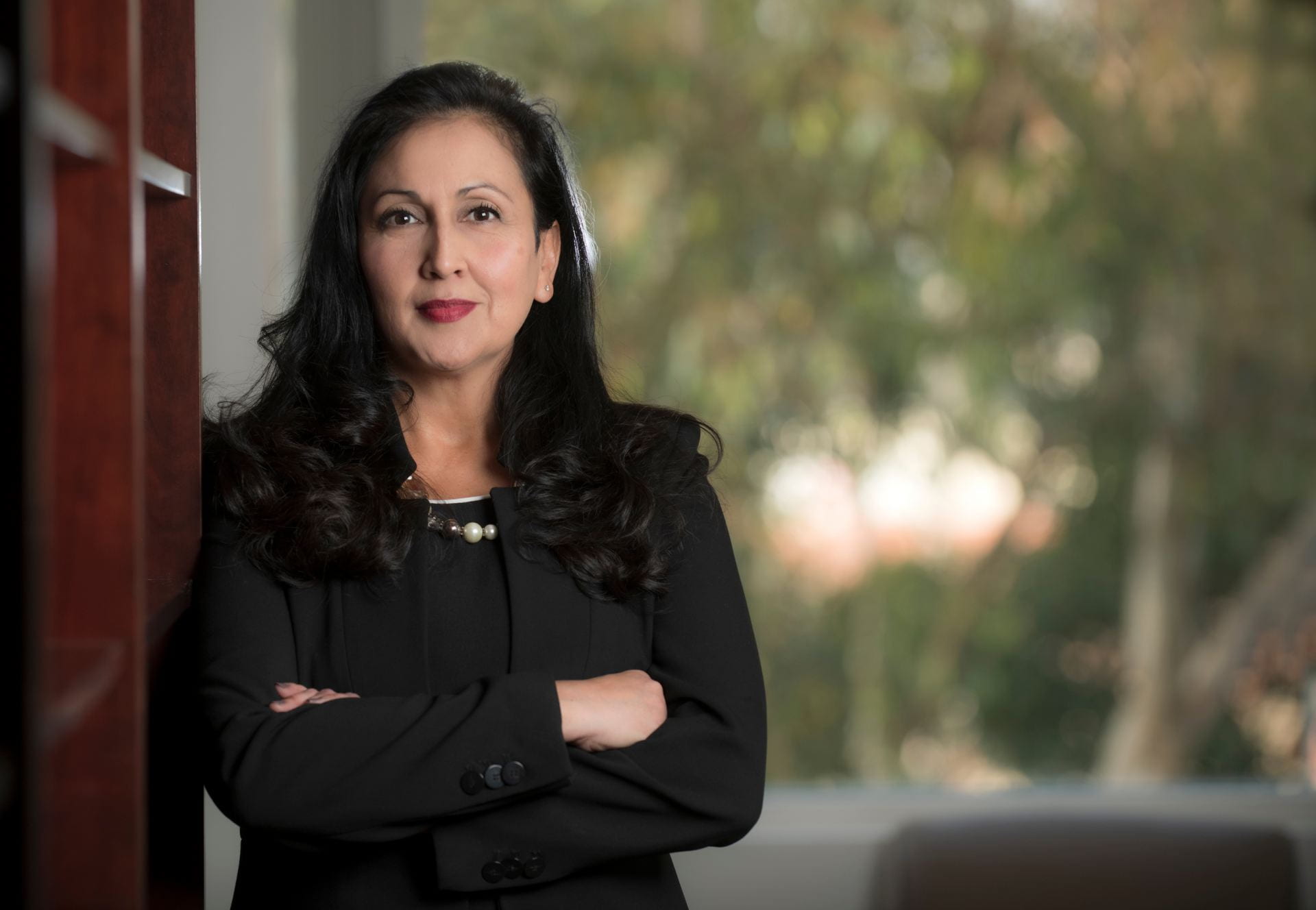From ‘What?’ to ‘Wow!’
Innovative course teaches UCI grad students to better communicate their scientific research to the public

There was a time when scientists didn’t need to worry about social media or concern themselves much about sharing their work with the nonscientific community. Well, those days are over, and a new, interdisciplinary course at UCI focuses on training graduate students in environmental science to better communicate what they do to the public.
“I think we’re doing ourselves a disservice if we don’t say, ‘Hey, here are the short-term and long-term societal benefits of the work that we do,’” says course leader Steve Allison, UCI professor of ecology & evolutionary biology. “You can’t make that argument if you don’t have the language, if you can’t translate your jargon into something the public can understand. These are tough skills, and they have to be taught.”

For example, here is his scientific explanation of global warming: “Greenhouse gases such as carbon dioxide absorb infrared radiation in the atmosphere and re-radiate the heat back toward the Earth’s surface, keeping air temperatures warm.” But to put it in terms that nonscientists can better comprehend, Allison says, “I like to use the analogy of a blanket. Increasing greenhouse gas concentrations in the atmosphere act like a thicker blanket that holds in more heat at the surface.”
To impart these lessons, he is bringing in speakers who specialize in communicating complex issues to the public, such as Sandra Tsing Loh, executive producer and host of “The Loh Down on Science.” The National Public Radio show, which humorously explains complicated, even esoteric, research to listeners, also employs UCI graduate students on its team of writers and editors.
Allison headed a similar course in 2016 that focused exclusively on climate change. The course, which included graduate students from the School of Humanities, resulted in a partnership with the humanities called Climates of Communication. This fall, the partnership will bring a number of trained writers and storytellers to Allison’s Communication Skills in Environmental Science course. Among the slate of invited speakers is Erika Hayasaki, UCI associate professor of literary journalism, who recently earned a grant from the Alicia Patterson Foundation to help fund her research, reporting and travel to write four magazine-style stories on epigenetics.
“Climate and environmental science is critical. To me, it is the issue of the 21st century,” says Janet Wilson, a UCI media relations specialist, a former environmental reporter and another of the class’s guest lecturers. “We are really just trying to take advantage of all the ways of communicating out there to let people know what UCI’s doing, because we’ve got incredible, globally recognized research in climate science.”
Such subjects, while highly relevant these days, can be politically charged, so among the communication skills taught in Allison’s course is how environmental scientists can present their work to all audiences in a neutral manner.
In addition, the class will show students – many of whom plan to become university professors one day – how to “brand” themselves by harnessing the power of social media. Academics are starting to notice that an online presence increases their citation rates.
“We’re not just research machines, and no matter what you do, there’s still some humanity to it, and it’s good to leverage that in a positive way,” says Allison, who explores how microbes regulate the cycling of carbon and nutrients in their ecosystems.
He hopes to also equip enrollees with active learning techniques that they can use in the future as classrooms grow more advanced. These methods promoting student engagement and collaboration – debates, role-playing, small-group problem-solving and the analysis, demonstration and application of concepts – are being employed by an increasing number of faculty members who recognize that the standard lecture style of teaching is not as effective as it could be.
Allison believes that scientists need to start taking responsibility for informing nonexperts about their findings in language that is easy to understand but doesn’t strip the research of its accuracy. “If we don’t communicate back to the public,” he says, “we’re not going to have citizens who are educated, who have an appreciation of science – and that’s on us.”


